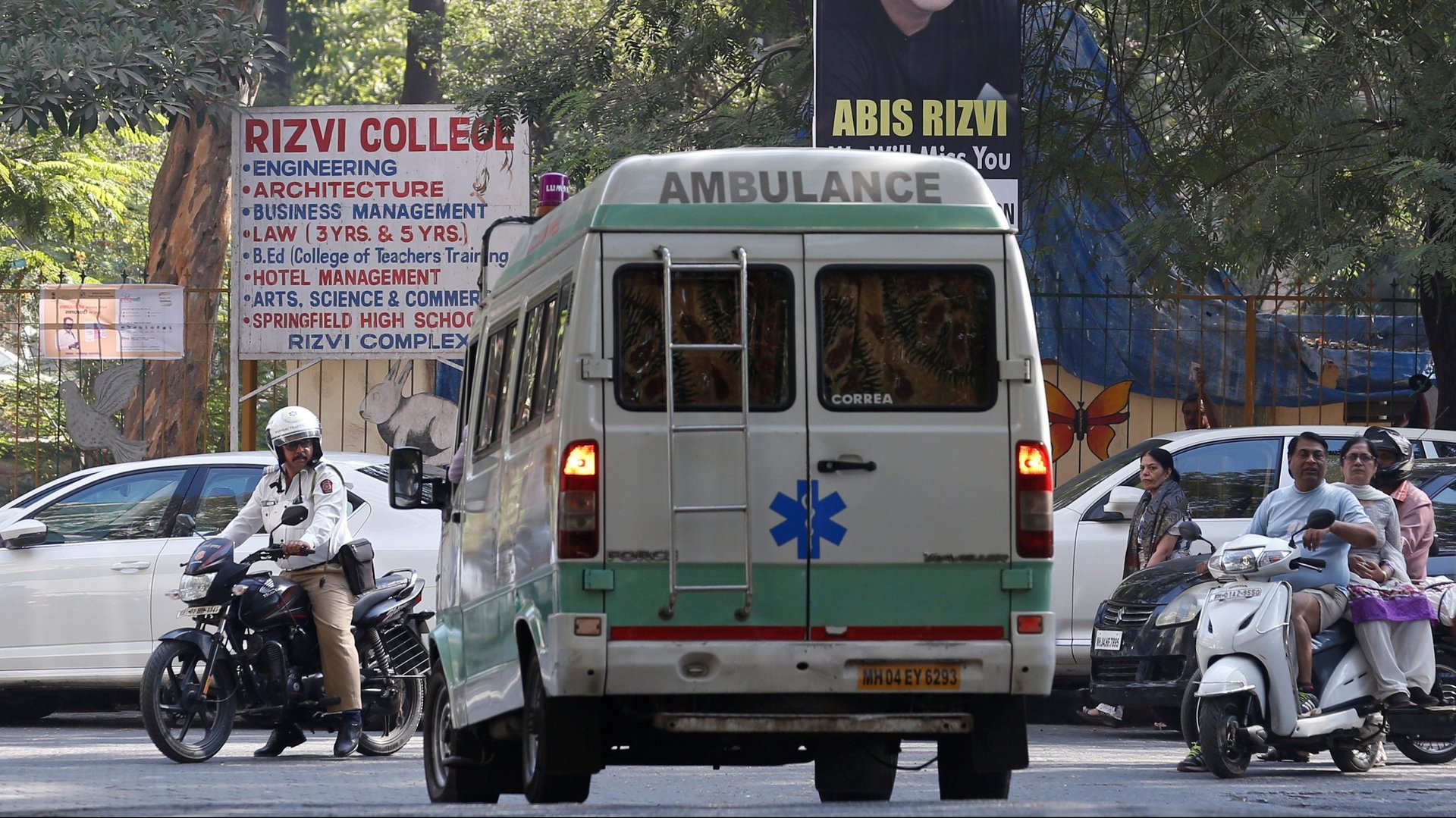India is raising the penalty on drunk driving by five times
This post has been updated.


This post has been updated.
India is moving to tighten its road safety laws.
Yesterday (July 31), Rajya Sabha, the upper house of parliament, passed the Narendra Modi-led government’s proposed amendments to the Motor Vehicles Act, which were cleared by the lower house, Lok Sabha, earlier this month.
The amendments will now become law after the Modi cabinet notifies them.
The Motor Vehicles (Amendment) Bill, 2019 bolsters measures to assist road accident victims as well as stiffens the penalties for various driving violations, though the terms for imprisonment largely remain the same.
For instance, while the maximum penalty that can be charged from a person convicted of driving under the influence of alcohol or drugs would rise five-fold, the maximum prison term, should the judge decide to award one, would still be three months.
Over 54,000 people died in road accidents on national highways alone in 2018, road transport minister Nitin Gadkari recently told the parliament. A vast majority of the deaths were caused due to speeding, while 5% were a result of drunk driving.
Here are a few other notable changes that were tabled by the government and have been cleared by parliament:
Protection of good samaritans: No one who helps a road accident victim will be held liable for any negligence while providing assistance.
Smooth passage for emergency vehicles: Any driver who does not give way to an ambulance, fire engine, or other emergency vehicles will be punishable with a maximum imprisonment of six months or a fine of Rs10,000, or both.
Free medical treatment during the golden hour: The Indian government will pay for the treatment of a victim during the first hour after a road accident. Also known as the golden hour, this period is the most crucial in saving an accident victim’s life.
Liability of legal guardian: If a minor commits a driving offence, their legal guardian will be held liable unless they can prove a lack of knowledge of the offence, or that they took the due diligence to prevent it.
During Modi’s previous term, too, the lower house, Lok Sabha, lower house had passed these amendments, but the Rajya Sabha stalled for various reasons, including the proposed rules being an encroachment on states’ rights to legislate on road safety.